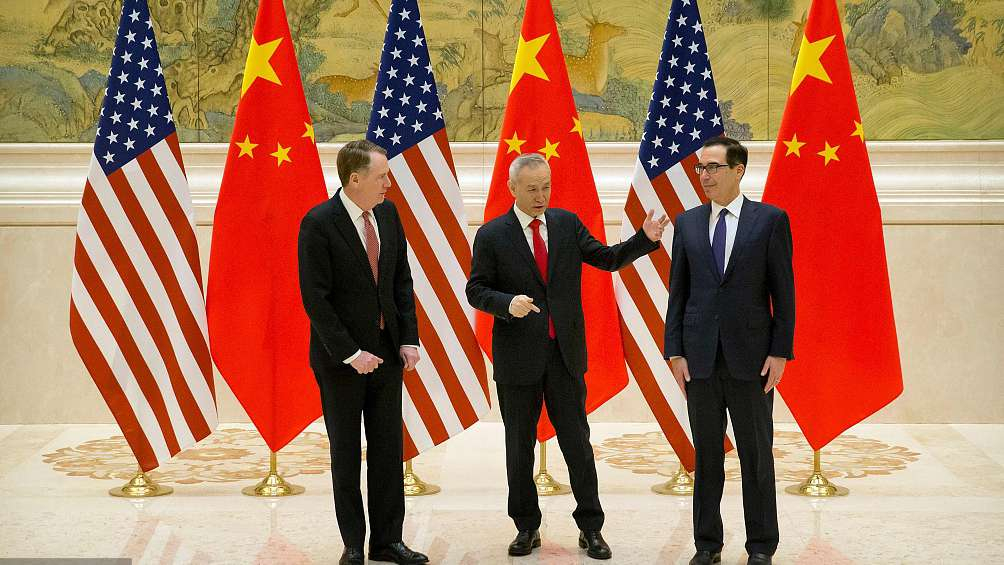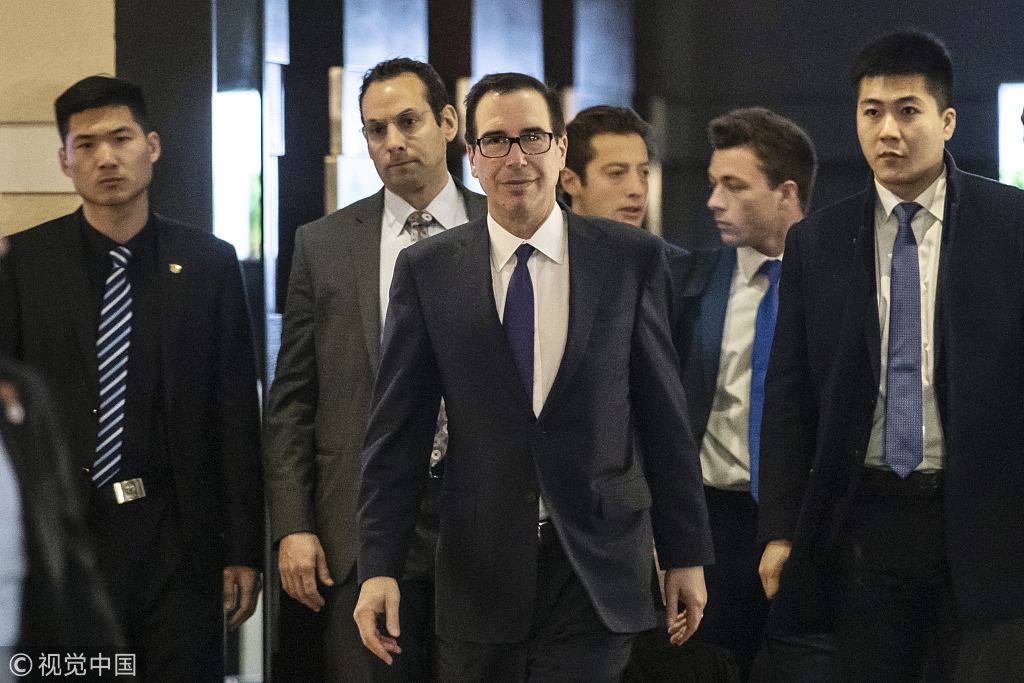
Opinion
10:04, 18-Feb-2019
Countries need to work together to 'CURE' world illnesses
Updated
15:01, 18-Feb-2019
Liu Zhiqin

Editor's note: Liu Zhiqin is a senior fellow at Chongyang Institute for Financial Studies at Renmin University of China. The article reflects the author's opinions and not necessarily the views of CGTN.
The recent trade talks between China and the United States ended on February 15 in Beijing. The outcome of this round of negotiations has attracted much attention from the international business community. As expected by most experts, the talk yielded a positive result. And it was announced that further talks will be held soon.
President Xi Jinping has met delegates of both countries and reiterated the importance and the necessity of deepening cooperation and coordination to solve trade disputes between the two countries.
Two major achievements of this talk would inspire the industrial and business circles to make more efforts to reach a peaceful and constructive deal between China and the U.S. in the near future.
The first concerns "tactical issues," such as trade deficits and tariffs to be imposed on Chinese products. These issues could be settled if China agreed to importing more goods and products from the U.S., which includes not only agricultural products and low-value-added goods, but also high-end products.
The second involves strategic issues. The two sides have exchanged views over some of those issues, such as carrying out structural reforms. China has undertaken reforms in all areas in the past four decades while the U.S. has remained relatively unchanged. There exists plenty of differences in the two countries' ways of doing things, which has so far led to a range of disagreements between the two sides that are hard to settle.

Steven Mnuchin, U.S. Treasury secretary (center) leaves a hotel in Beijing, China, February 14, 2019. /VCG Photo
Steven Mnuchin, U.S. Treasury secretary (center) leaves a hotel in Beijing, China, February 14, 2019. /VCG Photo
In the meantime, it is important to note that the strong unilateral and isolationist tendency displayed by the Trump administration has not only caused disruptions to U.S.-China economic relations but also done much damage to the rest of the world, such as inflicting economic pain on a number of countries other than China by dragging them into trade disputes with the U.S. as well.
It is evident that the current U.S. policies are heavily focused on defending the country's number one position in the world and the administration is willing to do that at the expense of other countries' interests.
This causes the world to be facing a lot of uncertainties at the moment. While American people are oftentimes caught off guard by a variety of Trump's announcements, such as the recent national emergency declaration over the immigrant issue, the rest of the world experiences the same thing when it comes to how Trump deals with U.S. conflicts with other countries.
Thus, the U.S.-China trade war does not represent the whole picture of world problems today. Addressing the current global issues requires the engagement of more countries than these two powerful nations. Most notably, to bring about stability, unity and security to the world, we need the "CURE" countries, which include China (for C), the U.S. (for U), Russia (for R) and the EU (for E), to work together.
These countries possess enormous economic, political and military power. When they cooperate and take coordinated actions, the world is more likely to see the trend of unilateralism subdued and major global illnesses cured.
(If you want to contribute and have specific expertise, please contact us at opinions@cgtn.com.)

SITEMAP
Copyright © 2018 CGTN. Beijing ICP prepared NO.16065310-3
Copyright © 2018 CGTN. Beijing ICP prepared NO.16065310-3